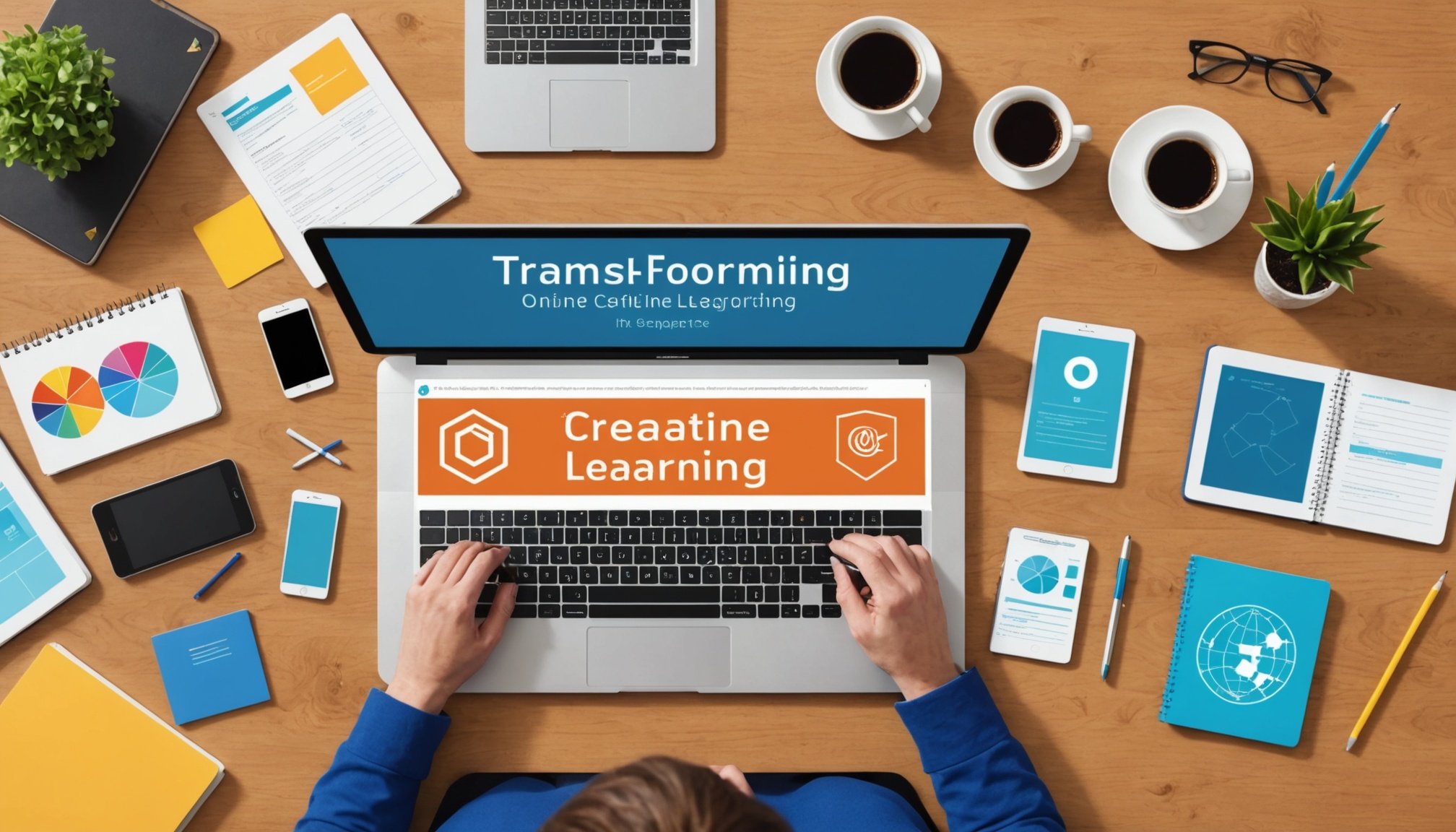Innovative Strategies for Online Learning in the UK
In the rapidly evolving landscape of education, innovative online learning has emerged as a significant frontier in the UK. Institutions are leveraging cutting-edge technologies to redefine how education is delivered. This includes the use of virtual reality (VR) and augmented reality (AR), which transport students into immersive environments, elevating the learning experience beyond traditional methods.
Among the UK institutions, a prominent example is the University of Warwick, which has successfully integrated educational technology trends into its curriculum. By adopting tools such as VR simulations, they have significantly enhanced student comprehension in complex subjects like medicine and engineering.
Also to discover : Empowering academic achievement: harnessing ai in uk universities for predictive performance insights and enhanced student support
To further boost user engagement, educators are harnessing the power of interactive content. This can manifest as gamified lessons, which transform learning into an engaging activity, or as adaptive learning systems that tailor content to individual student needs. These strategies not only make learning more enjoyable but also more effective.
For any educational institution aiming to innovate, understanding and implementing these technologies and strategies is crucial. By focusing on these advancements and examining successful case studies, educators can transform online learning into a more immersive, effective, and engaging experience for students across the UK.
Additional reading : Maximizing fundraising success: innovative facebook ad techniques for uk non-profits
Creative Approaches to Elevate User Experience
In the realm of modern education, enhancing user experience in education is crucial for both engagement and knowledge retention. Utilizing interactive learning methods can profoundly boost the online learning design, making it more effective and enjoyable.
Utilizing Gamification to Enhance Learning Engagement
Gamification techniques can significantly improve user experience in education by making learning more interactive. In the UK, popular methods include integrating reward systems, leaderboards, and achievement badges. This approach not only fosters a competitive spirit but also motivates students to engage actively with the curriculum, ultimately resulting in higher levels of participation and understanding.
The Role of Visual and Multimedia Content
Incorporating visuals and multimedia enhances the interactive learning methods deployed in educational settings. Well-designed imagery, videos, and infographics aid in simplifying complex concepts, thereby making them easily digestible. This type of content stimulates visual and auditory senses, supporting various learning styles and enriching the entire online learning design.
Personalized Learning Experiences Through AI and Data Analytics
Leveraging AI and data analytics in education can pave the way for personalized learning experiences. This approach allows educators to tailor lessons to individual student’s needs, preferences, and learning speeds. By analysing student data, AI can identify areas that require additional focus, ensuring each learner receives the attention necessary to thrive.
Current Trends in Online Learning in the UK
Online learning trends have significantly transformed the UK educational landscape in recent years. Educational technology advancements are at the forefront of this change, driving improvements in both teaching practices and student engagement. As the education sector embraces digital solutions, UK education reform is adapting to support these innovations.
The shift towards online learning has been propelled by a growing need for flexibility and accessibility. Schools and universities are now incorporating remote learning into their curricula, prompting significant changes in policy. These changes include adjustments to assessment methods and curriculum design, ensuring that students can engage with content in diverse ways. The impact of remote learning on policy and curriculum is thus profound, reshaping traditional educational models to accommodate a digital-first approach.
Emerging technologies, such as artificial intelligence and virtual reality, are shaping the future of online education. These technologies enhance interactive learning experiences, offering personalized and immersive educational environments. As educational technology advancements continue to evolve, they present opportunities for more innovative and effective teaching methods. Thus, the integration of these technologies is not just a trend but a critical component of ongoing UK education reform efforts, ensuring that education in the UK remains competitive and forward-thinking in the global arena.
Best Practices for Online Learning Platforms
In the rapidly evolving landscape of online education, implementing best practices ensures that learning is both effective and inclusive. Embracing user-centric learning platforms is crucial, focusing on ease of access and engagement for diverse learners.
Ensuring Accessibility for All Learners
One critical aspect of online course development is ensuring that it is accessible to everyone, regardless of their physical abilities or technological proficiency. This includes providing alt text for images, transcripts for videos, and designing for screen readers. Such measures not only comply with standards but also expand the course reach, promoting inclusivity in user-centric learning platforms.
Creating a Supportive Online Learning Community
A thriving digital community fosters better engagement and retention. Courses should feature forums, live Q&As, and interactive assignments to encourage collaboration among learners. These elements help form a cohesive learning environment where students feel supported and motivated.
Leveraging Feedback for Continuous Improvement
Incorporating feedback mechanisms is vital for refining course content. Constructive criticism can guide the necessary changes that enhance user satisfaction. Regularly reviewing feedback allows educators to adapt content and strategies to meet evolving learner needs, ensuring that the platform remains relevant and beneficial.
Overall, best practices in online education revolve around accessibility, community engagement, and continual course evolution, making the learning experience enriching and efficient for all users.
Success Stories and Testimonials
In the realm of online education, success stories provide valuable insights into transformative learning experiences. Many UK educational institutions have effectively embraced digital platforms, showcasing the potential of online education. These institutions’ case studies reveal how adapting to virtual classrooms has led to remarkable outcomes for both educators and students.
Transformative Learning Experiences
Student testimonies are particularly enlightening. Many learners express how online courses have shattered geographical barriers, offering access to quality education that was previously unattainable. They highlight the flexibility of learning at their own pace and the wider range of resources available online. Such experiences underscore the profound impact on personal and professional growth, driving home the point that online education can be both effective and rewarding.
Inspiring Future Approaches
These success stories also serve as a blueprint for future educational strategies. By analyzing successful transformations, educators can refine their methods to better cater to diverse learning needs. The shared experiences encourage institutions to invest in technology and pedagogy that support personalised learning.
Student testimonials continue to be a crucial source of feedback, aiding in constant improvements and inspiring new strategies for enriched educational experiences. Together, these narratives foster a compelling vision of how online education can evolve to benefit both current and future learners.






